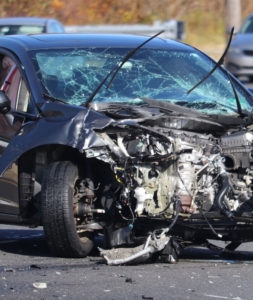Third District Court of Appeal Assesses Medical Expenses Damages in Car Accident Case

In a Florida car accident lawsuit, the injured party or parties must show that the injury alleged was caused by the accident. To assist with this, a general rule exists in Florida that a plaintiff is entitled to recover at least the medical expenses incurred for any reasonably necessary diagnostic testing. However, exceptions do exist, which are explored in a recent state appellate decision, Finkel v. Batista (No. 3D15-2509).
In this case, a couple was hit in a fender-bender by a man who was found to be 100% liable for the accident. A second trial was held to determine whether the accident caused loss, injury, or damage to the injured woman. The jury returned a verdict awarding zero damages, and the trial court granted a new trial because the jury did not award anything for the diagnostic testing expenses. The defendants appealed, arguing the verdict should stand because the testimony given at trial by the injured person’s expert fell into an applicable exception to the general rule providing for diagnostic testing.
During this trial, the injured woman had her orthopedic surgeon testify. He opined that the accident caused a partial, permanent injury to her lower back but admitted on cross-examination that the injured woman failed to disclose other accidents in her personal history. The woman had previously been in another car accident and suffered a slip-and-fall injury. Both led to hospital visits to treat back pain. When confronted with this information, the surgeon acknowledged that his opinion may have changed if he had known about these undisclosed incidents. Other evidence indicated that the accident did not cause the injury. The defendants’ expert agreed that diagnostic testing was reasonably necessary to determine whether the accident caused the injury, but he also said that an opinion is formed on the assumption the information given is truthful.
At the end of the trial, the jury was given a verdict form that first asked whether or not the negligence was the legal cause of loss, injury, or damage to the woman. If the answer was Yes, the jury was directed to answer Questions 2 & 3 on the form. If the answer was No, the jury was finished and directed to return the form to the courtroom. The jury answered in the negative and therefore did not answer any questions about damages awards. The injured woman’s counsel did not object to the questions on the jury form during trial.
In its analysis, the appellate court looked at the conflicting expert medical opinions on whether the car accident before them caused the woman’s back injury. It specifically noted that evidence provided by both parties revealed the injured woman’s lack of candor about her medical history, specifically prior accidents that led to treatment for a back injury. The Court of Appeal found that the trial court did not make a finding that the jury verdict went against the manifest weight of the evidence, and it only granted a new trial based on the general rule without looking at the many exceptions to the rule. The appellate court held that the evidence supported the jury verdict and that the jury simply followed the instructions provided to them, which precluded any sort of monetary damages award. The trial court’s order granting a new trial was vacated, and the jury verdict was reinstated.
If you’ve been injured in a Florida rear-end accident, it is still possible to recover damages for your injuries, even if you’ve been in prior accidents. The experienced counsel at Weston & Pape can help sort out causation through diagnostic testing and aggressively pursue all available damages. Call today at 772-266-5555 or 561-299-3999 for a free, confidential consultation.
More Blog Posts:
Florida District Court of Appeal Reviews Drunk Driver Motorcycle Accident Case, South Florida Injury Lawyer Blog, August 4, 2016
Wrongful Death Appeal Discusses Statutory Requirements for Expert Witnesses in Florida, South Florida Injury Lawyer Blog, July 13, 2016

 Call Us Today
- It's Free
Call Us Today
- It's Free